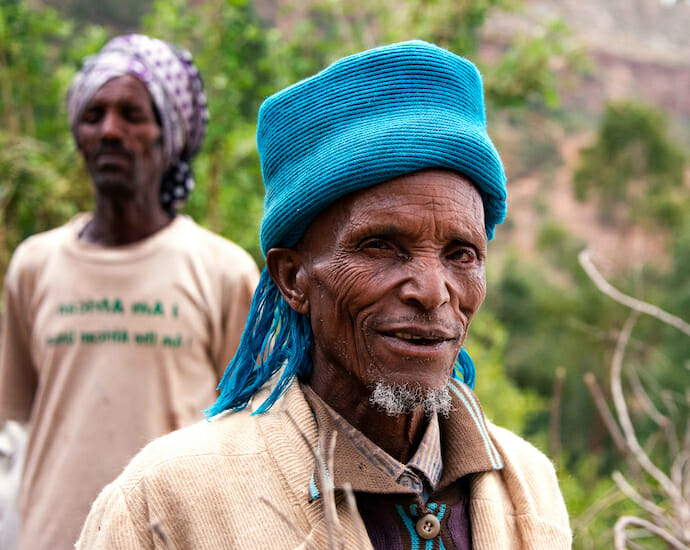
What Role Biden Can Play in Ethiopia
The highly anticipated Grand Ethiopian Renaissance Dam (GERD) has been a source of contention between Ethiopia and Egypt for some time now. The dam, when completed, will be the largest hydroelectric power plant in Africa. Egypt counters that the GERD will limit its access to water.
Historically, the Nile has been a vital source of freshwater for Egypt, mainly utilized in agriculture. Approximately 90% of Egypt’s freshwater comes from the Nile. Egypt’s government is concerned that the GERD will result in water scarcity for its smallholder farmers. Although the United States has been acting as a neutral mediator in the dispute, the former Trump administration made little to no effort in deescalating the situation. The United States needs to improve its relationship with Ethiopia by supporting Ethiopia’s decision to fill the dam, improve Egypt’s agricultural sector, and address the ongoing conflict in the Tigray region. A tall order.
Ethiopia needs support from the United States on its decision to fill the dam. Ethiopia began filling the dam’s reservoir beginning in July with expectations to have the dam online by 2023. The dam is a critical factor in determining Ethiopia’s development. According to the World Food Programme, 5.9 million Ethiopians face food insecurity. The Global Food Security Index ranks Ethiopia 108 out of 113 countries on its food security index, compared to Egypt, which ranks 60. The United States, an ally to both Ethiopia and Egypt, has been mediating talks between the two countries and Sudan to reach a mutual agreement. In September 2020, Trump blocked $272 million worth of foreign assistance to Ethiopia, accusing the country of backtracking on agreements it had made. However, the Biden administration has delinked the aid pause from GERD negotiations.
Since Ethiopia declared its intentions to build the GERD, Ethiopia, Sudan, and Egypt have held numerous talks. The United States played a role in mediating the talks, but they have proven fruitless. Sudan has indicated that it supports Ethiopia’s decision to build the dam to prevent heavy flooding during rainy seasons. Sudan also benefits from the dam as the country will receive relatively cheap electrical power generated from the dam. In 2015, Ethiopia, Sudan, and Egypt signed a Declaration of Principles. However, many unsuccessful talks have taken place since the agreement was signed.

To find a solution, the United States should consider providing Egypt with agricultural and irrigation solutions to ease any concerns about water scarcity. The United States, a long-time military ally to Egypt, should focus on providing monetary assistance to better Egypt’s irrigation system. Egypt currently provides farmers with low-interest loans to purchase equipment. This solution is costly for Egypt’s smallholder farmers. The U.S. currently gives Egypt around $1.5 billion in foreign aid, of which, 89% goes towards military assistance. The United States should shift its focus to providing the country with more economic aid that focuses on humanitarian and development objectives. Providing assistance to Egypt’s agricultural sector would perhaps convince Egypt to reconsider accepting Ethiopia’s decision to fill the dam.
Ethiopia is the most populous country in the Horn of Africa. If the Biden administration does not act now to preserve the current situation, efforts to reach an agreement regarding the dam will be left up in the air with no conclusion, leaving space for new dimensions to emerge in the conflict.
At the same time, Ethiopia is facing a violent conflict centered on the Tigray region that has the potential to spill over to neighboring countries. The Biden administration needs to hold Ethiopia’s government accountable for accusations relating to ethnic cleansing and ongoing human rights violations. The humanitarian crisis in the northern region, with thousands of people dead and displaced from the region, shows no signs of slowing down. The region is experiencing a shortage of food and water where many have been left starving, with the situation deteriorating rapidly.
Meanwhile, Ethiopia’s Prime Minister Abiy Ahmed has cut out access to the Tigray region despite stating publicly the conflict was over months ago and promising access to aid agencies. The Biden administration, alongside the United Nations, the African Union, and the European Union, needs to ensure that humanitarian assistance can reach vulnerable populations and hold parties accountable and urge a political settlement to the conflict. Nevertheless, first, the U.S. needs to urge Ethiopia’s government and other armed groups to cease military activities in the region and give unfettered humanitarian access to the region immediately.

